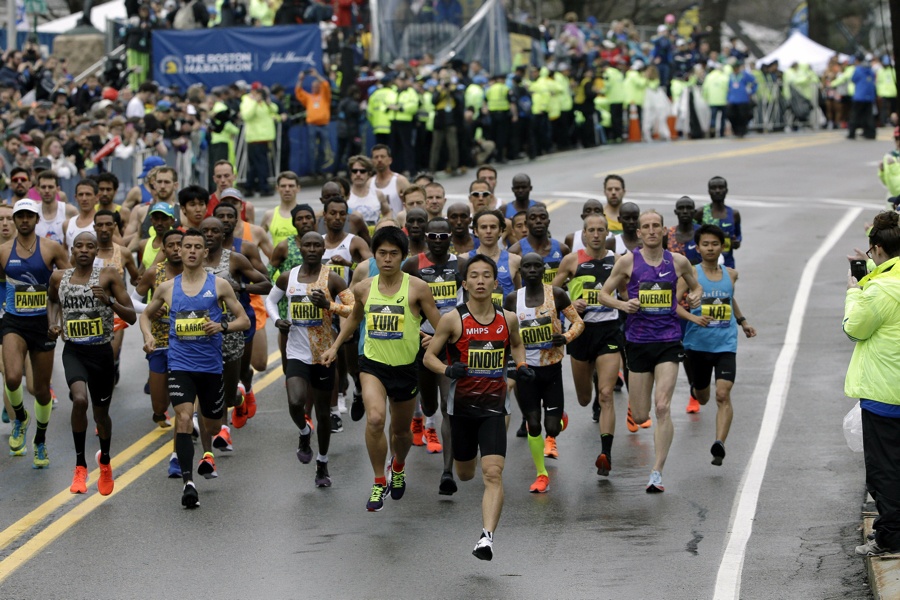Study Shows Elite Boston Marathon Runners May Have Superior Poop
According to researchers at Fitbiomics, the bacteria found in these athletes' poop might contain performance-enhancing bacteria.

AP Photo/Steven Senne
Everyone poops. But not everyone’s poop is created equal. And according to new research published earlier this week in the journal Nature Medicine, elite Boston Marathon runners’ poop is actually quite superior.
Researchers at biotech startup Fitbiomics, which was spun out of the Wyss Institute for Biologically Inspired Engineering at Harvard University, found a special bacteria in the digestive tracts of elite runners that may help boost performance.
The study began in 2015, about two weeks before the Boston Marathon, when researchers analyzed a sample size of 15 elite athletes’ poop as well as 10 sedentary control participants who weren’t running any marathons. They examined the samples up until a week before and one week after the race. That was when they noticed the significant increase in the bacteria, called Veillonella, in the elite runners’ guts.
“When we were going through the study, we noticed Veillonella spike,” Jonathan Scheiman, co-founder and CEO of the startup, says. “When we looked up what that specific strain of bacteria does, there was a light bulb moment.” The light bulb went off because that specific bacteria is responsible for essentially eating lactic acid, as Scheiman puts it. “Its natural function is to consume the byproduct of exercise,” he says.
Lactic acid has been misunderstood as the cause of fatigue, when really it’s more of a marker, or a byproduct, of fatigue. It becomes a hindrance to performance when you’re producing more lactic acid than your body can clear out, which causes a burning sensation in your muscles, forcing you to slow down and recover. So it makes sense that if elite athletes had more of a specific metabolite to break down that acid, they wouldn’t have to slow down as frequently to recover, and would be able to go faster longer.
To test this, the researchers took the strain of Veillonella from the athletes’ poop and fed it to mice. Using a treadmill test, they discovered that those mice performed 13 percent better than mice that were not given the bacteria.
In theory, the company seeks to create a commercialized probiotic from these microbial leads. “By looking at the most fit and healthy people to see what does work, we can identify molecular components that maybe someday could translate to modalities that could help everyone,” Scheiman says.
He says there’s still much we don’t know about the gut, and we continue to discover new things every day. The implications spread across different sectors of health care, with recent discoveries highlighting such potential applications as weight loss methods and the possibility that gut bacteria could prevent food allergies. In essence, the gut is one system made up of thousands of other tiny systems that are worth a lot of exploring. And yes, sometimes that exploring is a little gross.
Scheiman says it best: “We collect a lot of shit. You have to be willing to get a little dirty.”


